Noise Pollution & Public Acceptance of Drone Flights
Drones are increasingly common across industries, including agriculture, mapping, surveillance, disaster response, medical delivery and even in househ

Inflation has become a pressing issue in today’s India. Whether it is the corporate sector, the government sector, or even a tea stall, people are discussing how prices are skyrocketing. It is only fair to say that it is a general perception that the prices of almost all things are increasing with time, but this is not entirely true. It might come as a surprise to many, but believe me, this is true to the core.
When we talk about drones, a technology that has become enormously popular in recent years, it has also become more economical, with prices decreasing in 2025
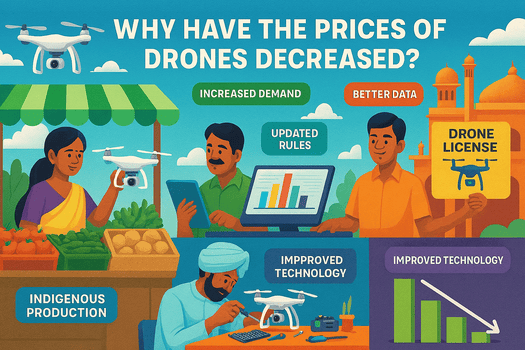
It is true that nothing in this world happens without a reason, be it the increasing prices or the decrease in the same. When dones first burst onto the scene in India, their use was rather limited to certain areas and the prices were also relatively high. However, with the passage of time, this technology has become the favourite of almost everyone and is impacting almost all aspects of life.
When a thing becomes so popular, there is an increasing number of OEMs operating in India, making various types of drones at rather competitive prices. Now, let us examine some of the major reasons that have contributed to a decrease in drone prices in India.
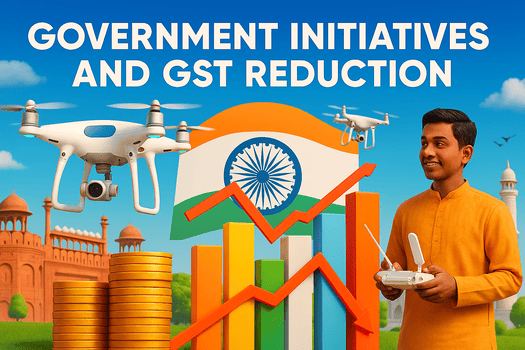
There has been increased government support for the commercial adoption of drones. Several steps have been taken to ensure that India not only becomes self-sufficient in drone manufacturing but also establishes itself as a hub for drone manufacturing. This will allow India not only to fulfil its own requirement for drones but also to export them.
The 'Make in India' initiative scheme has boosted domestic manufacturing, reduced import dependence and decreased costs. Furthermore, the GST on drones was reduced to a uniform 5% in September 2025, reducing procurement costs.
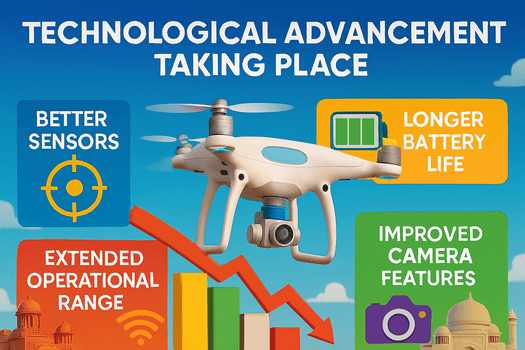
Technology is one thing that continues to advance with every passing day, and the same is true for drones as well. A significant amount of research and development has been invested in continually improving the drones.
Technological innovations such as improved sensors, AI-powered autonomous navigation and longer battery life have made drones more efficient and versatile. Prices of older models often fall as new, more advanced models enter the market, providing consumers with better options at lower prices. With the technological advancements, it is only fair to say that drones will become even more economical in the years to come.
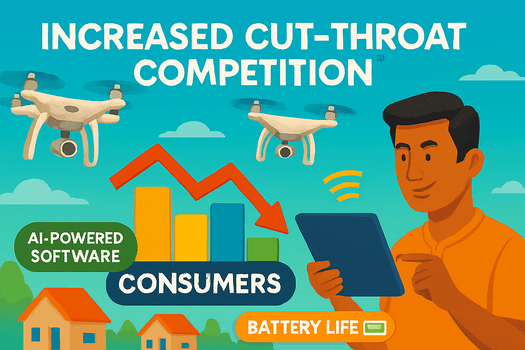
When an industry and technology have boomed like the drone industry, all the giants wish to make the most of this and not just that, it also gives rise to new competition altogether. Increasing competition in the drone market, including from new startups and established technology companies, has forced companies to cut prices to maintain their market share. This increase in competition has worked wonders for drone consumers, as they now have more drones to choose from and also enjoy competitive prices.
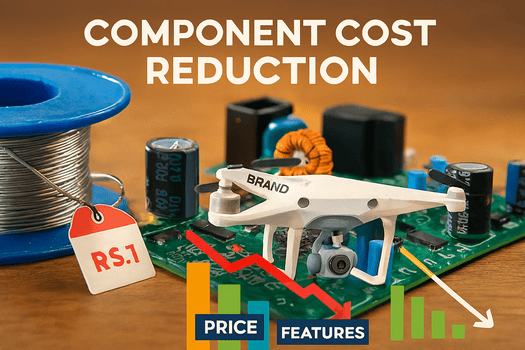
With intense competition in the finished product category of drones, there will also be significant competition in the component market. The prices of components and drones are directly proportional to each other. When the price of one decreases, the price of the other also decreases. Declining costs of drone components, such as sensors and GPS modules, have helped manufacturers produce drones at lower prices.
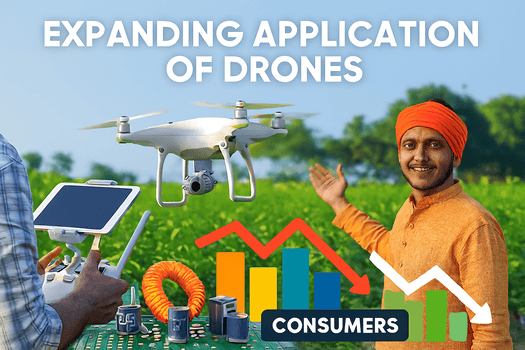
As we have already mentioned, drones have evolved significantly beyond their initial military use. Now they are used in several industries and this number will only increase with time. The increasing use of drones in various sectors such as agriculture, logistics, infrastructure inspection and surveillance is leading to mass production, which reduces the cost per unit.
The combination of all these factors is leading to falling drone prices in 2025, making them more affordable and accessible to consumers and industries.
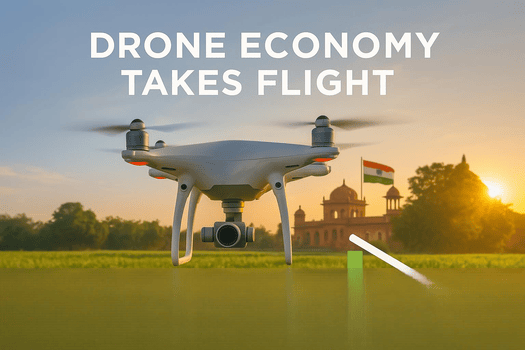
Recognizing their potential, the Indian government is escalating efforts to integrate drone technology into national development strategies. Initiatives, for example, the 'Namo Drone Didi' scheme, empower women-led Self-Help Groups by providing drones for agricultural services, thus enhancing productivity and creating livelihood opportunities.
In the defence sector, the Indian Army's Terrier Cyber Quest 2025 emphasizes leveraging developing technologies, including drones, for addressing modern security challenges.
In 2025, the GST on drones was reduced to a uniform 5%, down from the previous range of 18% to 28%. This encourages widespread drone adoption across various sectors, while also boosting domestic manufacturing initiatives. A uniform tax structure will resolve classification disputes, provide policy certainty and create a predictable environment for businesses investing in this emerging industry.
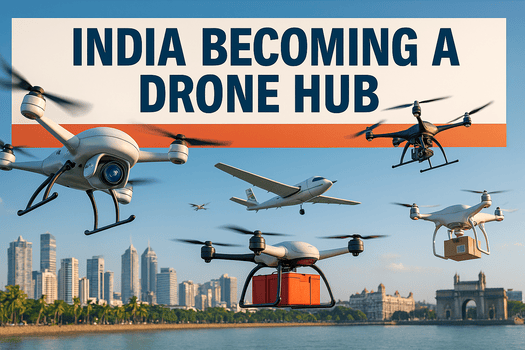
The expansion of drone technology, initially driven by military needs, dates back to 1849 when unmanned balloons were used. With time, drones have expanded to various commercial applications. Today, drones enhance efficiency in agriculture, infrastructure inspection, healthcare delivery and more, presenting a substantial prospect for financial growth and job creation. Recognizing the strategic and financial potential of drones, India will become a drone hub by the end of this decade. Leveraging its robust IT sector, engineering talent and vast domestic market, India is all set to lead the global drone industry.

As drone prices decrease, demand for drones is expected to increase even further. If you want to learn about drone piloting or purchase a drone of your choice, come to us at Flapone Aviation, and mark my words - you will not regret this decision.
Not sure which drone fits your needs? Our experts can guide you to the perfect UAV for your mission.